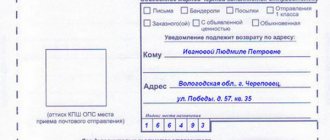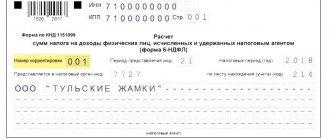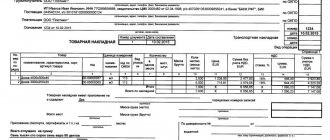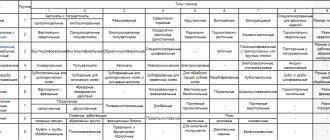The probationary condition is not mandatory, but an additional clause in the content of the employment contract, along with such conditions as additional non-state pension provision for the employee, additional insurance for the employee, non-disclosure of legally protected secrets and others that are specified in Art. 57 Labor Code of the Russian Federation. Therefore, if this condition is not included in the employment contract, then the employee is considered hired without testing.
If an employee is actually allowed to work without drawing up an employment contract, the probationary clause can be included in the employment contract only if it is drawn up as a separate agreement before starting work (Article 70 of the Labor Code of the Russian Federation).
To whom the employer does not have the right to establish a probationary period
Such categories of workers are indicated in Part 4 of Art. 70 Labor Code of the Russian Federation:
- candidates under 18 years of age;
- pregnant women, as well as women with children who are under 1.5 years old;
- elected through a competition to fill the relevant position;
- those elected to elective positions for paid work;
- employees entering into an employment contract for a period of up to two months;
- people who were invited to work as a transfer from another employer by agreement;
- those who have successfully completed their apprenticeship;
- persons with secondary vocational education or higher education who received it through accredited educational programs, entering work for the first time in their specialty within one year from the date of receipt of the relevant education.
Situation 1. Who should not be given the test
The young specialist graduated from the institute six months ago. I have worked before, but this is the first time I am getting a job in my acquired specialty. He is given a probationary period. Is this legal?
Let's start with the fact that the test can only be ordered by mutual consent of the employee and the employer. This is provided for in Article 70 of the Labor Code of the Russian Federation, which states: “When concluding an employment contract, by agreement of the parties, it may provide for the condition of testing the employee in order to verify his compliance with the assigned work.” That is, without the consent of the employee, a probationary period cannot be assigned to him. Of course, the applicant is unlikely to be able to take advantage of this right; most likely, he will not be hired if he tries to start his career with such disagreement. But there are categories of employees for whom such a trial period is not permitted by law, even with their consent. A hiring test is not established for:
- pregnant women and women with children under the age of one and a half years;
- persons elected through a competition to fill the relevant position;
- persons under the age of 18;
- persons who have graduated from state-accredited educational institutions of primary, secondary and higher vocational education and are entering work for the first time in the acquired specialty within one year from the date of graduation from the educational institution;
- persons elected to elective positions for paid work;
- persons invited to work by way of transfer from another employer as agreed between employers;
- persons concluding an employment contract for a period of up to two months.
Therefore, despite the fact that the young specialist from our example has already worked, it is unlawful to set a test for him. And even if he signed a contract containing such a condition, the employer cannot fire him as having failed the test.
In which documents should the condition regarding the employee's probation be stated?
This condition is included in the employment contract or in a separate agreement. And the employer has the right to establish it only before the person is actually allowed to work and with the latter’s consent.
Rostrud recommends using the following wording: “This contract/agreement provides for a probationary period with a probationary period of 3 (three) months.”
The employment contract or agreement is signed in two copies. One is for the employee and the other is for the HR department. It is better to stitch and number the employment contract. This is necessary in case the dismissed employee does not have the opportunity to talk about the employer replacing the sheets of the contract.
The probationary period condition is also stated in the text of the order, which is issued on the basis of the employment contract.
The employer must maintain a work book for an employee who is on a probationary period. In Art. 66 of the Labor Code of the Russian Federation specifies that “the employer (with the exception of employers - individuals who are not individual entrepreneurs) maintains work books for each employee who has worked for him for more than five days, in the case where work for this employer is the main one for the employee.”
To understand whether a newcomer is suitable for the position for which he is applying, you need to monitor the results of his activities throughout the probationary period, demand reports from him, and record shortcomings.
A final decision on compliance can be made before the probationary period expires.
Situation 2. Employment contract with a probationary period
The specialist got a job. The employer warned him about the probationary period. An employment contract was signed. But there was not a word in it about the purpose of the test. What are the consequences?
If a probationary period is assigned, this must be specified in the employment contract. The Labor Code of the Russian Federation states that the absence of such a condition in the employment agreement means that the employee was hired without a special period of adaptation and evaluation. Even if there is an order to appoint a trial, it will not be possible to dismiss an employee as having failed the probationary period. And the labor inspector or the court, having compared the order and the contract, will consider the absence of a corresponding clause in the contract to be a significant violation. In this case, the court will certainly recognize the appointment of a probationary period as invalid.
Employee adaptation
Adaptation in any team is not an easy process, because a new person joins an existing team. Of course, he needs to be helped, not left without support, and appointed a curator to help him during the probationary period.
Who is watching the newcomer during this period?
The following may be involved in monitoring and monitoring the correct execution of tasks:
- the immediate supervisor of the tested employee;
- mentor;
- curator;
- observer.
It is also possible to create commissions, but this practice is usually only suitable for large enterprises.
What are they looking at?
During this period, monitor:
- the ability to quickly master various skills and learn;
- quality of performance of official duties;
- desire and ability to quickly correct mistakes;
- compliance with labor discipline and internal regulations;
- how a person copes with unexpected problems and stress;
- communication skills, communication skills.
Situation 3. Fixed-term employment contract for the duration of the trial
The employee was offered to enter into a fixed-term employment contract for two months during the probationary period. After its completion, the contract will either be re-signed for an indefinite period, or will not be concluded if the employee does not pass the test. Is this legal?
Article 58 of the Labor Code of the Russian Federation says in black and white: “It is prohibited to conclude fixed-term employment contracts in order to evade the provision of rights and guarantees provided for employees with whom an employment contract is concluded for an indefinite period of time.” And concluding a fixed-term contract instead of completing a trial falls under such cases. Moreover, the Plenum of the Supreme Court of the Russian Federation, in its Resolution No. 2 of March 17, 2004, recommended that courts pay special attention to these points. Therefore, if an employee goes to court or the labor inspectorate with a complaint about such actions of the employer, a fixed-term employment contract can be recognized as concluded for an indefinite period.
Rights and obligations of the employer
A probationary employee has the same rights as a regular employee. Accordingly, this imposes a number of obligations on the employer: pay the probationary employee the same salary as the rest, provide him with a safe workplace, pay contributions for pension insurance, etc.
As for the rights of the employer, in connection with the completion of the probationary period by the employee, he receives only one right
– dismiss an employee who has failed to perform his duties in a simplified manner.
This also carries with it responsibilities: it is necessary that the employee’s inability to perform duties be documented. These can be various internal documents drawn up by the employee himself or his immediate superiors.
The employer has the right to increased control over work
such an employee. Among other things, these are the following rights:
- tracking the timing and quality of work;
- recording the results of work in documents;
- request a report from the employee on the completion of tasks;
- demand from the employee explanations about the reasons for non-fulfillment of tasks.
The employer has all these rights in relation to all other employees. But if an employee is checked during a probationary period, the results of the check may be grounds for dismissal.
Situation 4. Length of period
An employee gets a job as an accountant. She was given a probationary period of 6 months. Is this legal?
According to Article 70 of the Labor Code of the Russian Federation, the probationary period cannot exceed three months. The exceptions are heads of organizations and their deputies, chief accountants and their deputies, heads of branches, representative offices or other separate structural divisions of organizations, for which the test is established for a period of no more than six months. But in our case, a person gets a job as an accountant, and not as a chief accountant or his deputy. Thus, a probationary period of 3 months is the maximum duration. And if the employment contract is concluded for a period of 2 to 6 months, then the trial cannot exceed two weeks. When concluding a contract lasting less than 2 months, there is no trial period at all.
IMPORTANT!
During the trial period, days of temporary incapacity for work of the employee and other periods when he was actually absent from work are not counted. That is, if an employee is assigned a probationary period of 2 months, and he was sick for 2 weeks of these two months, then the probationary period is extended by two weeks.
How to get?
To successfully complete this probationary period, you do not need to do anything special; you just need to conscientiously and efficiently carry out all the tasks set by management. First, you should carefully study your job description, your responsibilities, and do not hesitate to ask advice from experienced colleagues.
You need to listen to competent criticism, respond adequately to it and correct your shortcomings and mistakes. For each employee for this period, a specific individual plan is drawn up , which outlines control tasks.
Work plan
- What it is?
This is a document containing several thematic sections, each of which includes the following questions:- A specific task for the employee (professional).
The timing of its execution (exact number of hours or days).
- Actual result.
- Expected Result.
- Curator's comments.
- Who composes?
Typically, an experienced HR employee or immediate supervisor is involved in drawing up such a plan. - What is it needed for?
The plan is drawn up in order to understand whether a given employee is capable of effectively and competently performing his job duties, and in order to avoid possible conflict situations in the future.
A sample assignment for a probationary period (approximate plan) can be downloaded below:
Tasks
It is allowed to set only those tasks that correspond to the job responsibilities of the subject . It is also necessary to take into account the possibility of an objective assessment based on the results of their implementation.
Situation 5. Reduced salary for probationary period
When hiring a new employee, the employer tells him that he is being hired for a two-month trial period - the salary will be lower than at the end of these two months. Are these conditions legal?
What does the Labor Code say about what the salary should be during the probationary period? And in general, is the probationary period paid? Article 70 of the Labor Code states: “During the probationary period, the employee is subject to the provisions of labor legislation and other regulatory legal acts containing labor law norms, collective agreements, agreements, and local regulations.” Each organization must have a staffing table, which indicates all salaries (tariff rates) for each position existing in this enterprise. Thus, for the probationary period (Labor Code of the Russian Federation), payment should not be less than indicated in the staffing table. This means that the situation with understating wages in this case is unlawful.
Of course, the employer can justify the reduced salary for the probationary period in other ways. For example, establish that after this period the first indexation of wages occurs (the Labor Code of the Russian Federation directly establishes the employer’s obligation to index the wages of employees), or transfer the employee to another position in the staffing table. Finally, you can simply increase his salary without making this conditional on passing a probationary period (for “one-off” positions that are present in the staffing table in a single copy).
You can challenge a reduced salary for the adaptation period only if it is white. Or the condition for a reduced salary is specified in the employment contract. If this condition is not specified in the contract, and part of the salary was black, then it is difficult to prove that this money was paid to you at all. However, an attempt to challenge a reduced salary assigned in the first two to three months of work is relatively realistic in our conditions only for workers who do not want to stay at a given place of work.
And one more point: in an employment contract, the salary cannot be determined by the wording “according to the staffing table.” Article 57 of the Labor Code of the Russian Federation states that the terms of remuneration (including the size of the tariff rate or salary (official salary) of the employee, additional payments, allowances and incentive payments) are mandatory for inclusion in the employment contract. That is, it must include either the tariff rate or salary, as well as other payments.
Purposes of the employment test
When hiring, the employer needs a certain time during which he can understand whether he needs this person as an employee or not, whether he is qualified and professional enough to cope with the assigned tasks. And the law provides him with such time in the form of a probationary period.
The future employee, for his part, will also be able to decide during the probationary period whether this job is suitable for him, whether he has enough knowledge and skills, and whether his work will be properly appreciated and paid by a potential employer.
Therefore, it is a mistake to think that a probationary period is only good for the employer. The candidate also needs time to draw conclusions, which means that establishing a probationary period is a mutually beneficial matter.
Do you need the help of an employment lawyer?
We resolve any labor disputes in favor of the client!
+7
Test results and their consequences
The new employee got a job with a probationary period. At the end of the test, the employer did not inform him of the results of the test, and the employee continued to work. Two weeks passed. Unexpectedly, the employer announced that the employee had failed the test and would be fired as a result. Did the employer violate the law with his actions?
In this situation, the employer made two mistakes at once. Firstly, if the test period has expired and the employee continues to work, then he is considered to have passed the test and subsequent termination of the employment contract is allowed only on a general basis (Article 71 of the Labor Code of the Russian Federation). Secondly, under the same article, if the employer is dissatisfied with the results of the test, he has the right to terminate the employment contract with the employee before the expiration of the employee evaluation period. But at the same time, he must notify the employee about this in writing three days in advance, indicating the reasons that served as the basis for recognizing him as having failed the test.
So, in this case, the employer did not give the employee three days' written notice, giving reasons, that he failed the test. And only after two weeks, when the person continued to work, he verbally announced the decision to fire him. Based on all of the above, it is unacceptable to dismiss an employee as having failed the test.
By the way, the Labor Code of the Russian Federation reserves the right for the employee to appeal the employer’s decision on an unsatisfactory test result in court. And in this case, special attention is paid to the formulation of the reasons why the employee was not satisfied with the employer. In this case, all statements of the employer must be supported by relevant evidence. The court will be critical of dubious, vague formulations.
If, during the probationary period, the employee himself comes to the conclusion that the job offered to him is not suitable for him, then he has the right to terminate the employment contract at his own request, notifying the employer in writing three days in advance.
IMPORTANT!
Please note: not in two weeks, as with a regular voluntary dismissal, but in just three days.
So, we have looked at the most common situations in life. Let's repeat the most important rules.
Features of employee dismissal
At the initiative of the employee
An employee can always quit his job at his own request, but after completing the probationary period, the employer can only be notified of this 3 days in advance.
(instead of 14 days).
That is, if a person decides that this job is not suitable for him, he can write a letter of resignation of his own free will and in 3 days (or faster) he will be officially fired from his job.
The law does not prohibit filing a resignation letter while on vacation or sick leave; all this is also true for employees on a probationary period.
An employee can submit a letter of resignation at any time during the probationary period - both on the second day of work and after 2 months. The 3-day “work” rule will apply if the application is submitted during the probationary period.
At the initiative of the employer
The ability to dismiss an employee who has failed to cope with his duties in a simplified manner is the main feature of the probationary period.
Reason for dismissal at the initiative of the employer
can be:
- untimely or improper performance of assigned work;
- violation of internal labor regulations;
- committing a disciplinary offense or violating other rules.
The main thing is that any valid reason for dismissing an employee must be documented, otherwise the court will reinstate him at work.
The legislation does not define which documents
the fact of violation by employees of the rules is confirmed, but the following are allowed:
- act on the production of defective products;
- explanatory notes written by the employee himself;
- reports or memos from the employee’s immediate supervisor;
- order to impose a penalty, etc.
In other words, an employee on a probationary period can be fired, but only if he has violated any rules and this is recorded in the documents.
Judicial practice is such that if an employer dismisses an employee during a probationary period with vague wording about his failure to pass the test, the court will most likely side with the employee, reinstate him and force the employer to pay him wages and compensation.
Moreover, if you fire an employee for absenteeism with the wording “for violation of labor discipline,” the employer may also have problems. He will have to prove that any other employee will also be fired for the same absenteeism.
Therefore, employers are advised to issue warnings or reprimands first
, and if the employee skips work again, he will be fired.
Dismissal procedure
The process of dismissing an employee during a probationary period at his own request is almost no different from that in another situation: the only difference is that you can notify the employer 3 days before the actual date of dismissal.
If the dismissal is initiated by the employer, he needs to draw up the appropriate documents.
First of all, the employee must be notified of dismissal
. This is also done a maximum of 3 days before the date of his actual release from office. A notice of dismissal is issued in two copies. The employee signs them, one copy remains with him, the second with the employer.
The employee may refuse to sign the document, then you can draw up an act of refusal to sign in the presence of witnesses or send a notice to your home address by registered mail with return receipt requested.
The dismissal itself is formalized by an order to terminate the employment contract.
. It can be drawn up using the standard T-8 form or the employer’s own form. The employee must read the order and sign it.
The remaining documents are drawn up in the same way as for a regular dismissal - entries in a personal card, an entry in the work book, issuance of certificates of the amount of earnings (182n), in the form SZV-M and SZV-STAZH. They can issue a 2-NDFL certificate, which indicates the salary and the tax withheld from it.
Since an employee on a probationary period has the same social package as the rest, upon dismissal he must be paid vacation pay compensation
. It is calculated according to the rules that the employer uses in other cases. In particular, the employee’s average daily earnings are calculated and multiplied by 2.33 days for each month worked (which is at least half worked).
If an employee believes that he was fired unfairly, within a month from the date of receipt of the work book, he can appeal this decision in court.
Results
Let's once again list the points that are worth paying attention to:
- There are categories of employees for whom a probationary period (PT) is not provided at all.
- If the IP is not included in the contract, it means that the employee, from the point of view of the law, was hired without an IP.
- Concluding a fixed-term employment contract for the period of IP is prohibited by the Labor Code of the Russian Federation.
- IP must not exceed three months. The only exceptions are managers and chief accountants. For them, the maximum IP is 6 months.
- When concluding an employment contract from 2 to 6 months, the IP should not exceed two weeks. And if a fixed-term employment contract lasting less than 2 months is concluded, IP is not provided for in a fixed-term employment contract at all.
- The salary for the IP should not be lower than the salary existing in the staffing table for a specific position.
- If the employee does not pass the IP, the employer is obliged to notify him of his decision in writing three days in advance, indicating the reasons.
- If the IS is over and the employee continues to work, then it is considered that he has successfully completed the IS.
- If an employee decides during the period of employment that this position is not suitable for him and decides to quit, he is obliged to notify the employer of his decision three days before dismissal.
Remember that stability and reliability are usually where the employer complies with the law. If you get a job where you are initially asked to act illegally, then be prepared for the fact that in the event of a disagreement it will be much more difficult to defend your rights.
Samples of employment contracts with a probationary period:
Indefinite
Minors
Persons under 18 years of age cannot be placed on probation. However, when establishing age, people often make the following mistake: they consider their birthday to be the age of majority (i.e., the date on the birth certificate and passport). This means that it would be a mistake to say that if a person was born on September 1, 1980, then he will turn 18 years old on September 1, 1998. The fact is that, in accordance with civil law, adulthood occurs the day after the official birthday. Accordingly, a probationary period cannot be established for him on September 1, 1998, and its establishment on September 2 is legal.
For part-timers
Due to turnover in many areas and rapidly changing conditions in the labor market, the phenomenon of part-time employment is gaining particular popularity. This may be convenient for a person due to the possibility of earning additional income without losing his main job.
They separate internal and external part-time work. The first group includes work within one organization, while the employee is assigned the main workplace and additional functionality. External part-time workers are the most popular option in the labor market. In this case, the employee goes to work for a third-party organization, being officially employed in another.
Despite the rare facts of internal part-time work compared to external ones, this format is more convenient from the perspective of the employer’s interests. It is also convenient for the employee - there is no need to waste time and money on travel, adapt to new working conditions, schedules, and management requirements. Working within the same team, even in different positions, is more comfortable in most cases.
When a part-time worker receives a new status, an employment contract is also concluded between him and the employer with a clause on the type of work
Labor legislation says nothing about the restrictions that a part-time worker or employer may face. Therefore, a probationary period for this type of work is possible:
- for any period at the discretion of the manager;
- for the period specified in the internal documents of the organization or individual entrepreneur.
At the same time, it cannot last longer than six months. It is also not possible to circumvent federal legislation when working part-time.
If the employee has already established himself as a professional - responsible and able to work - the probationary period may be limited to a few days. When part-time work is implemented within the same organization, this becomes an even more relevant option for the employer. If an employee does not accept the introduction of a probationary period as management doubting his professionalism, he can be tested in action for any period, up to the maximum (in this case, the test period can always be shortened - as a rule, this happens if an experienced employee copes well not only with basic, but also with additional working functionality).
In general, no one can prohibit the introduction of a test period for a part-time worker who is officially on the staff. The agreement regarding the conditions and duration of the tests remains at the discretion of the parties.
At the same time, it is worth remembering that an employee who has worked in an organization for 3 months and remains on staff on a permanent basis does not, from the legal perspective, need to be checked during internal combinations.
Additionally, it is worth mentioning a rather rare situation that still occurs in practice:
- An employee is sent to combine three working specialties.
- Initially, an employee gets a job in an organization on the condition of combining several functional positions.
In this case, the employer acts as follows: he sets his own probationary period for each unit and does not combine test periods. In this case, the end of the tests may fall on different calendar dates.
To comply with the rules of document flow, several agreements are concluded with the employee, and in each one a mark is placed on the combination
When part-time work becomes permanent, you can follow one of two paths:
- conclude a new employment contract;
- form an additional agreement.
In the first option, a new probationary period may be assigned. In the second case, it was previously specified in the part-time contract, so the introduction of additional tests by management is unlawful.
An exception is if the testing clause was omitted from the contract with the part-time worker. Then management can act as it considers necessary and correct for the organization.
Labor legislation introduces restrictions that managers must follow when appointing part-time workers in addition to the main staff positions. If it affects production or safety, employees are prohibited from holding multiple positions within the same organization. In addition, part-time work is prohibited in the case of leadership positions in the main job. The following categories of persons cannot combine several job positions:
- To the judges.
- Deputies.
- Employees of the state apparatus and local governments.
- Bank employees.
- Top management in JSC.
Example. A security guard works for a government agency and wants to get a part-time job at a private security company. In this case, the manager must refuse to employ the security guard.
Due to restrictions on part-time work, earnings are usually set at half the minimum wage. Wages are also calculated on an hourly or piecework basis. For processing in excess of the established limit, a double tariff is imposed. During the probationary period, these and other rights of part-time workers are preserved. A part-time worker undergoing testing can count on all the allowances due to full-time part-time workers, including the period of illness, training, etc.






